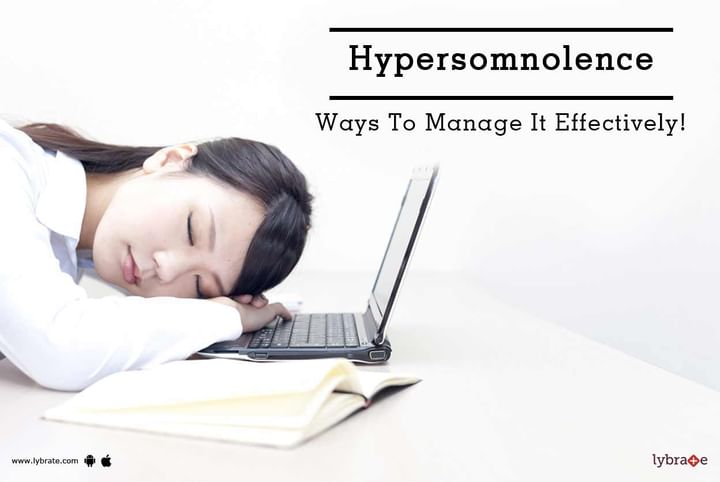Hypersomnolence - Ways To Manage It Effectively!
Sleep is known to most as a period of rest and relaxation, but there are multiple disorders which are associated with sleep too. Hypersomnolence or hypersomniais one of the most common sleep disorders. This is characterised by excessive daytime sleepiness and prolonged periods of sleep at night. They wake up fresh in the morning, but can easily go back to sleep any time of the day without feeling strained or tired. There is again no freshness associated upon waking up. Funny as it may sound, they can doze off even during a meal or in the middle of a conversation.
Causes: This condition is most common in men and in the early adolescent days.
- There is no underlying cause that has been identified, though there is a genetic predisposition.
- People with history of head trauma are more affected
- People with anxiety, depression, bipolar disorders, epilepsy, and other mental disorders are also more likely to be affected
- People with sleep apnea often are hypersomnolence
- Restless legs syndrome, narcolepsy
- Neurodegenerative disorders like Parkinson’s and Alzheimer’s tend to sleep more.
Symptoms:
- Sleeping for longer hours at night time
- Excessively sleepy during daytime
- Able to doze off anytime during the day
- Inappropriate and involuntary sleeping pattern
- Having difficulty getting out of bed after waking up, even after prolonged sleep
- Feeling of disorientation
- Feeling agitated, anxious, lethargic, and irritated
- Impaired cognition and memory
- All these lead to extreme state of drowsiness
- Increased tendency for hallucinations
- Reduced appetite and even weight loss in some people
- There is restlessness, reduced pace of thinking and speaking
- Overall reduced energy levels
- Social interactions are affected including work life, social functions, etc.
Diagnostic criteria:
- If a person happens to sleep more at night or falls asleep during the day easily for more than 3 times a week, it is usually concerning.
- The added feature of no tiring physical activity can also lead to suspicion
- In acute cases, these symptoms are present for at least a month and in chronic cases, it could be seen for up to 3 months
- It cannot be explained by lack of sleep on a regular basis
- One or more of the above conditions could be present, which can help in making the diagnosis
Treatment:
Most cases of hypersomnia would need treatment only to improve their energy levels and improve the quality of life. Very often, treating the underlying condition can lead to improvement of hypersomnia. The tired, lethargic, restless feeling affects the overall performance of a person, leaving them with a lowered self-esteem. Brain stimulating drugs like amphetamines are used to improve daytime alertness and also reduce sleepy feeling during the day.



+1.svg)
